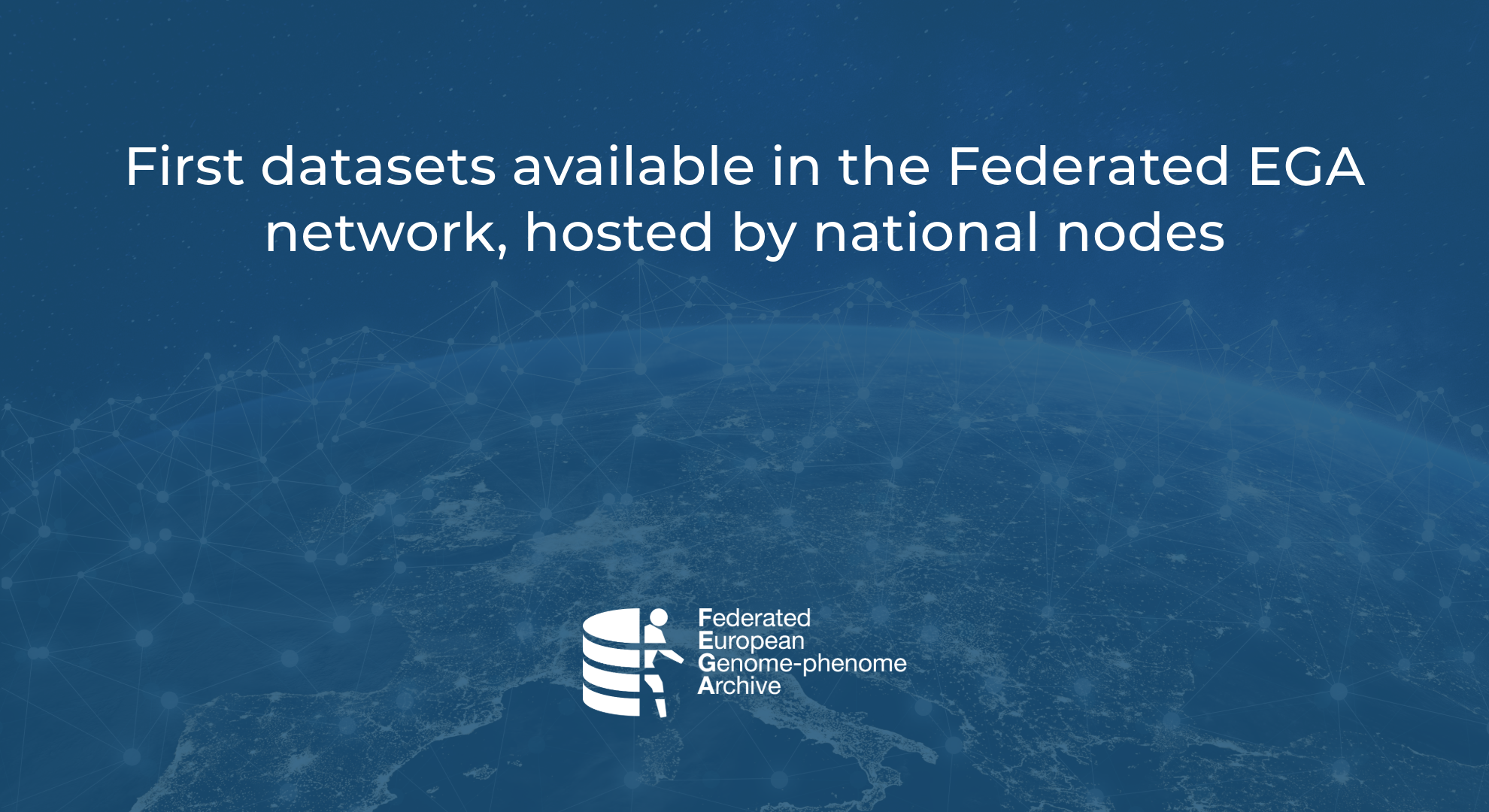In February 2024, a great milestone was reached for the human omics data community: the first datasets are now available in the Federated European Genome-phenome Archive (FEGA). These datasets - hosted by national nodes in Poland, Norway, and Sweden - are discoverable in the EGA portal and accessible according to national laws.
These datasets include:
- From FEGA Poland - The Genomic Map Of Poland
- From FEGA Norway - CRCbiome: Gut metagenome of Norwegian screening participants using FIT sampling
- Also from FEGA Norway - Single cell transcriptomics in expanded Tregs of APS-1 patients
- From FEGA Sweden - A Combined Omics and Tissue Biobank for Paediatric Cancers
The establishment of these datasets represents a significant step towards achieving the broader objectives of the FEGA; to facilitate the sharing of high-quality human genomic and phenotypic data across borders. “The value for users is twofold: it becomes easier to make data available securely compared to storing data locally, and data becomes easier to find for other researchers. The possibility of reuse improves the chances of both verifying scientific discoveries and reaching groundbreaking conclusions, of benefit to the research community and later also patients,” said Anna Hagwall, project manager and head of human data at FEGA Sweden, NBIS.
About Federated EGA
FEGA was launched in 2022 as a network to store and lawfully share sensitive human omics data safely. It relies on the technology originally developed by the EGA and support from ongoing collaborations with ELIXIR - a European life sciences infrastructure. FEGA has contributed to and benefitted from the implementation of community standards for sensitive data management including those developed by the Global Alliance for Genomics and Health (GA4GH). “The FEGA concept and the development of the Nordic FEGA nodes have been made possible thanks to several projects coordinated by NeIC,” said Kjell Petersen, FEGA Norway technical lead.
Managing human omics data is challenging due to its sheer size and privacy concerns, often resulting in restrictions on how and where sensitive data can be shared. The FEGA network follows a federated data access model whereby sensitive data is stored securely within a local or national jurisdiction, while discovery across the network for data of interest is enabled via a central portal.
As of February 2024, the FEGA network comprises seven European national nodes with tens of additional national partners working towards establishing a FEGA node. As the FEGA network continues to onboard nodes from around the world, populated with more and more data, we move closer to a vision of a truly global resource for discovery of and access to sensitive human omics data to accelerate disease research and improve human health. "The Federated EGA network is entering a key phase where the first research datasets are now available across the network. In coming years, we look forward to expanding these datasets to cover key areas such as cancer and rare diseases for the benefit of patients" said Thomas Keane, Group Leader at EMBL-EBI.




